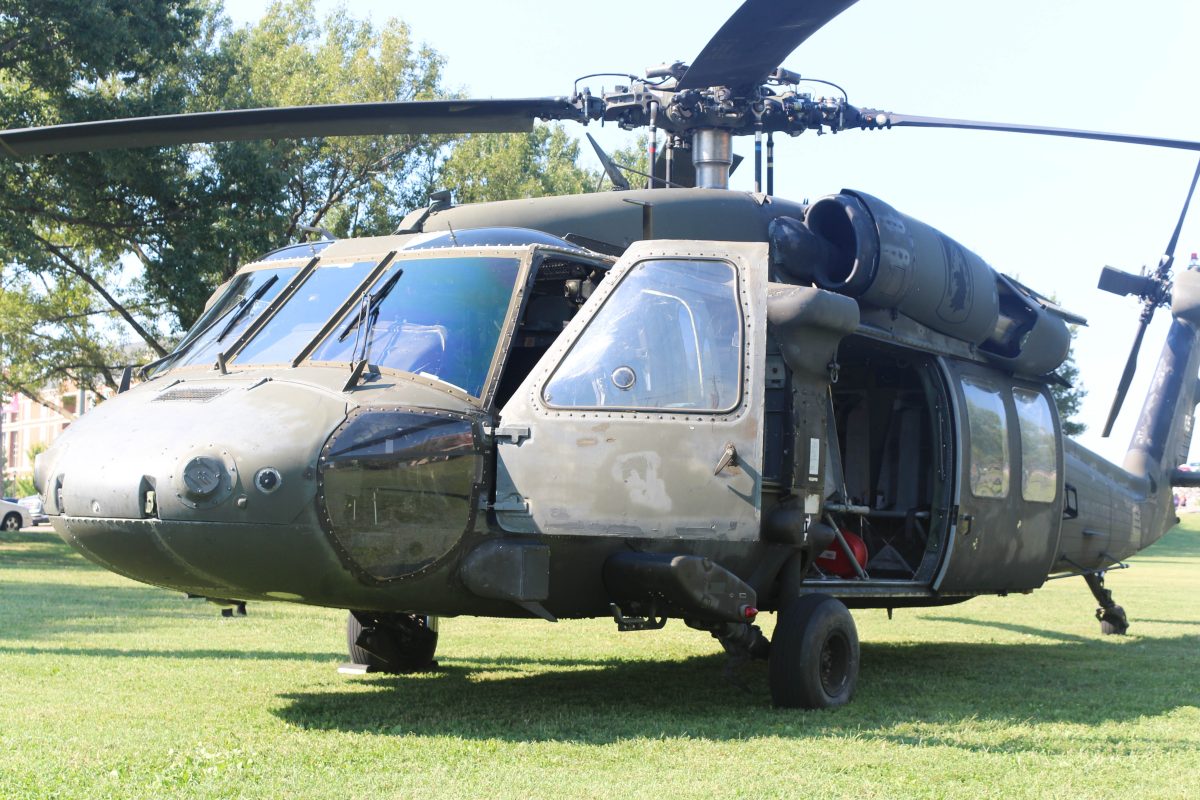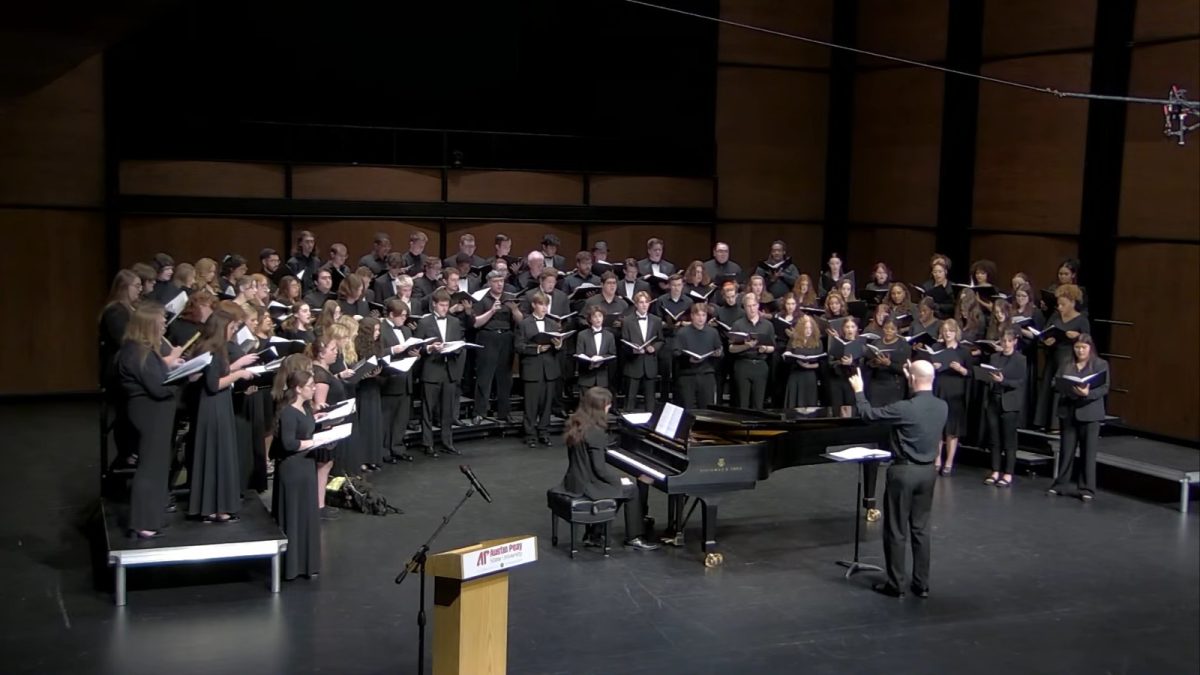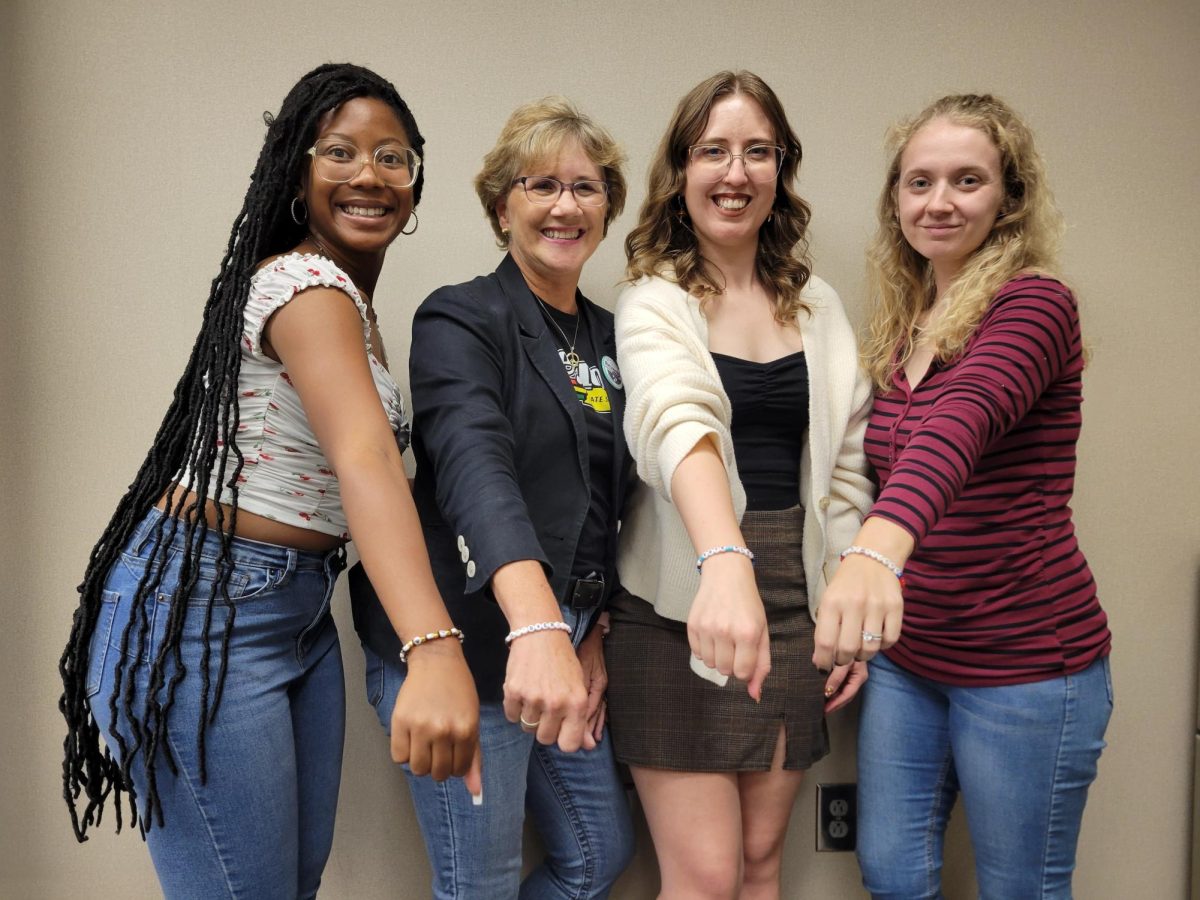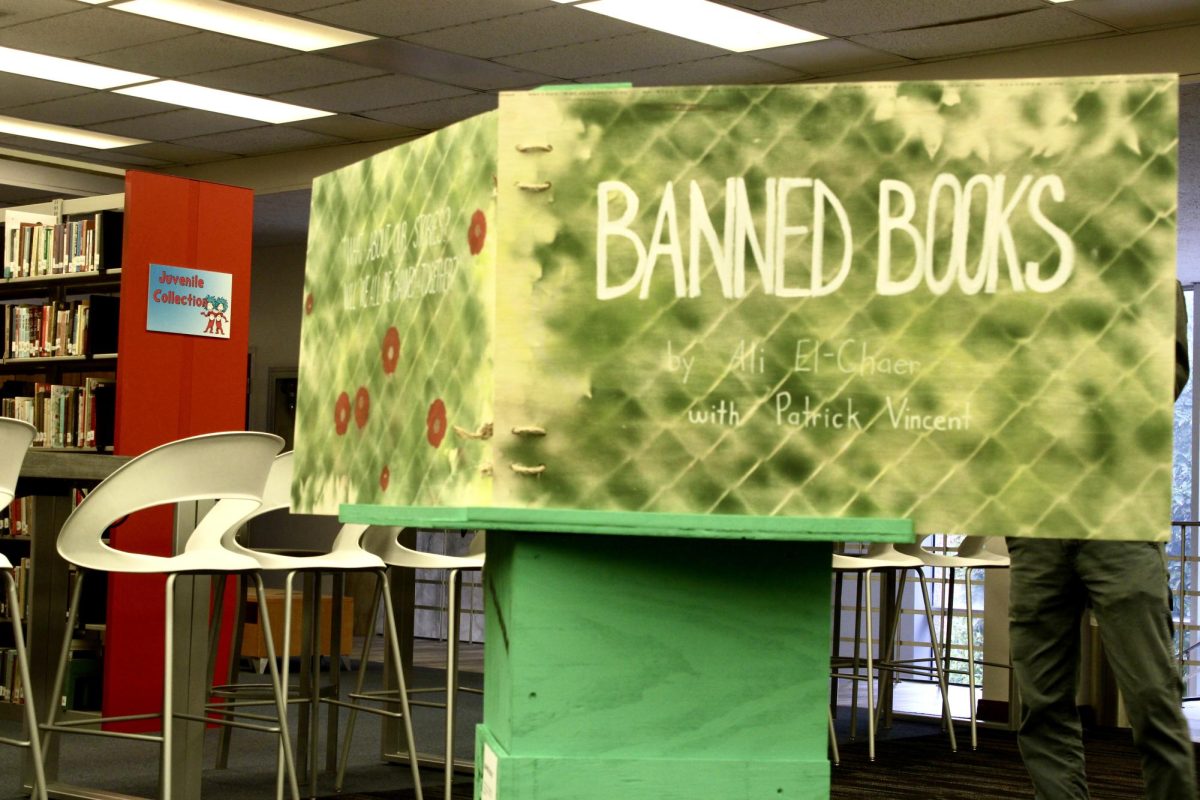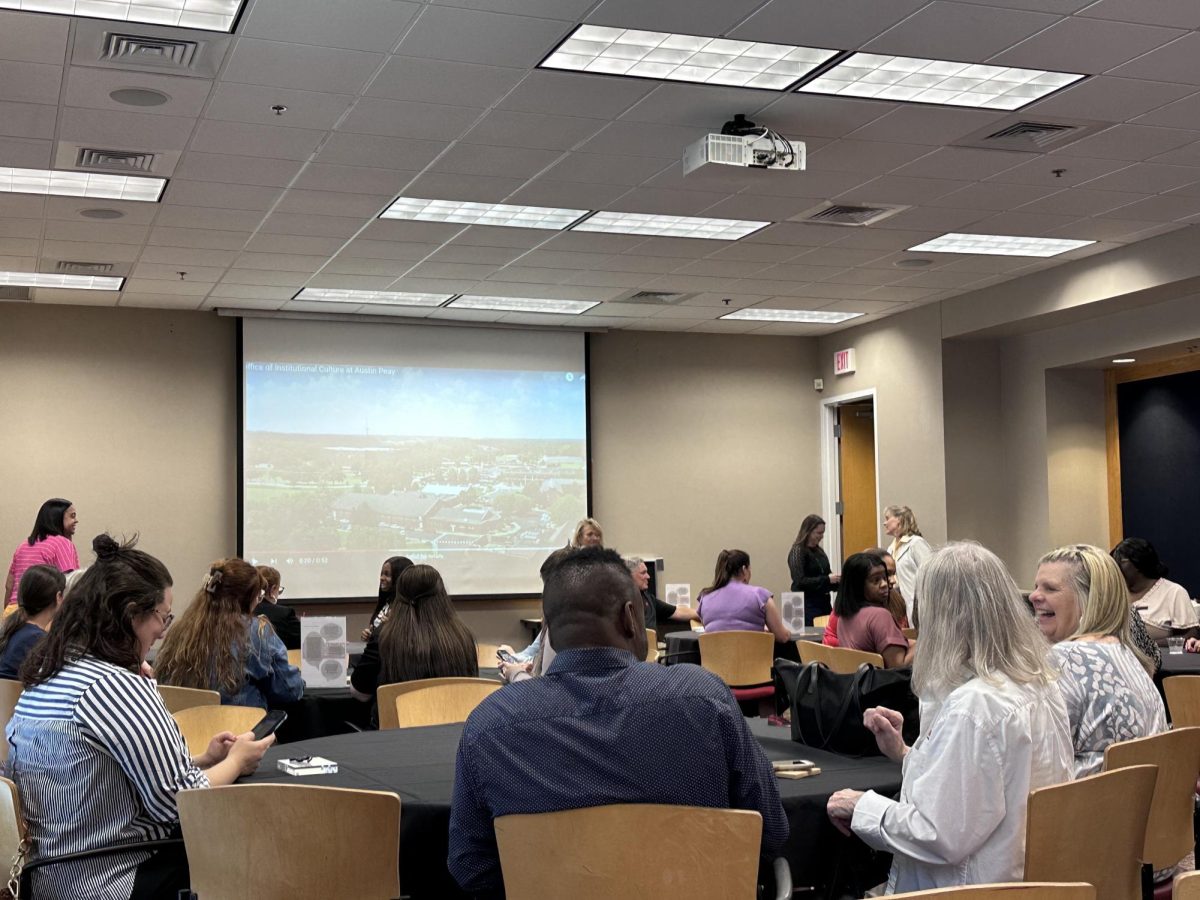On Friday, two unusual birds landed on campus.
These unusual birds were Black Hawk helicopters.
APSU’s ROTC program held its cold training to teach cadets how to properly load and unload Black Hawk helicopters.
Army National Guard personnel flew the Black Hawks into the Dunn Bowl at 10 A.M. on Sept. 21.
Prior to the Black Hawks coming, campus wide emails were sent out to warn everyone that the birds were coming.
According to Anthony Ramirez, senior political science and leadership and organizational administration major, before the birds landed “they (the cadets) cleared the HLZ, helicopter landing zone, of what we call FOD, foreign objects of debris.”
An example of FOD would be a cup or plastic fork which has not been thrown away but instead left as litter.
“Our goal is to make sure the HLZ is clear of those items because those items could be thrown around. After that, we had cadets posted at the corners of the Dunn Bowl… to make sure no one was walking in an unsafe way when the aircrafts came in,” Ramirez said.
Upon touch down, the cadets check out the helicopters and get information from the crew on board the aircrafts.
Safety precautions took place ahead of the landing of the helicopters.
“All operations have safety incorporated,” Ramirez said.
Prior to the cold training, cadets do a deliberate risk assessment worksheet to help eliminate some of the potential risks.
The worksheet lets Cadets consider all parts of the operations and figure out ways to eliminate risk.
One way the Cadets avoid risks is by simply instructing cadets on proper protocol and how to conduct themselves around the aircraft.
Cadets identify potential hazards, discuss them and make sure everyone knows of the hazards and how they will go about avoiding them.
The cold load training helps to familiarize the Cadets with the equipment and scenarios they will face in the Army.
The cold load training prepares Cadets for a larger training operation.
“Part of the safety requirements for our FTX (field training exercise) training on the 5th is to do this cold training.” Ramirez remarked. “It affords the students an opportunity to practice loading and unloading on a helicopter in a safe environment where we’re not doing it under duress.”
The field training exercise prepares the Cadets for the field training exercise on Oct. 5.

